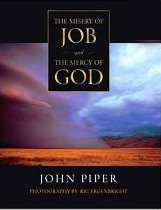Principles of Puritan Preaching - Part Two
This morning I post part one of the two-part post of principles from Puritan preaching, the concluding section of the five posts in the series of pastoral plagiarism. In the first post, J.I. Packer outlines the four axioms of Puritan preaching, and in this post, he gives eight distinct characteristics which shaped the style and structure of their preaching. Here they are, with excerpts from Packer:
8 Marks of Puritan Preaching by J.I. Packer:
- It was expository in its method.
Charles Simeon said, “My endeavor is to bring out of Scripture what is there . . . I have a great jealousy on this head, never to speak more or less that I believe to be the mind of the Spirit in the passage I am expounding.” So, “when you cannot get the full and real meaning of the passage, leave it alone” (284).
- It was doctrinal in its content.
“To be a good expositor, therefore, one must first be a good theologian. Theology—truth about God and man—is what God has put into the texts of Scripture, and theology is what preachers must draw out of them. To the question, ‘Should one preach doctrine?’, the Puritan answer would have been, ‘Why, what else is there to preach?’ . . . Doctrinal preaching certainly bores the hypocrites; but it is only doctrinal preaching that will save Christ’s sheep. The preacher’s job is to proclaim the faith, not to provide entertainment for unbelievers—in other words, to feed the sheep rather than amuse the goats” (284-85).
- It was orderly in its arrangement.
- It was popular in its style.
“The plainest words are the profitablest oratory in the weightiest matters.”
“They systematically eschewed any rhetorical display that might divert attention from God to themselves, and talked to their congregation in plain, straightforward, homely English” (285).
- It was Christ-centered in its orientation.
“ Puritan preaching revolved around ‘Christ, and him crucified’—for this is the hub of the Bible. The preachers’ commission is to declare the whole counsel of God; but the cross is the centre of that counsel . . .” (286).
- It was experimental in its interests.
“Study two books together: the Bible, and your own heart. The Puritans made it a matter of conscience to prove for themselves the saving power of the gospel they urged on others. They knew that, as John Owen put it, ‘a man preacheth that sermon only well to others, which preacheth itself in his own soul. . . . If the word do no dwell with power in us, it will not pass with power from us.’ . . . Their strenuous exercise in meditation and prayer, their sensitiveness to sin, their utter humility, their passion for holiness, and their glowing devotion to Christ equipped them to be master-physicians of the soul. And deep called to deep when they preached, for they spoke of the black depths and high peaks of Christian experience first-hand” (286).
- It was piercing in its applications.
There were six kinds of application prescribed in the Westminster Directory for Publick Worship:
- Instruction or information in the knowledge of some . . . consequence from doctrine
- Confutation of false doctrines
- Exhorting to duties
- Dehortation, reprehension, and publick admonition
- Applying comfort
- Trial [self-examination] (287)
“Strength of application was, from one standpoint, the most striking feature of Puritan preaching, and it is arguable that the theory of discriminating applications is the most valuable legacy that Puritan preachers have left to those who would preach the Bible and its gospel effectively today” (288).
- It was powerful in its manner.
“As one ne’er should preach again, And as a dying man to dying men.”
“All our work must be done spiritually, as by men possessed of he Holy Ghost. There is in some men’s preaching a spiritual strain, which spiritual hearers can discern and relish. . . . Our evidence and illustrations of divine truth must also be spiritual, being drawn from the Holy Scriptures. . . . It is the sign of a distempered heart that loseth the relish of Scripture excellency. For there is in a spiritual heart a co-naturality to the Word of God, because this is the seed which did regenerate him. The Word is that seal which made all the holy impressions that are in the hearts of true believers, and stamped the image of God upon them; and, therefore, they must needs . . . highly esteem it as long as they live. . . . Our whole work must be carried on under a deep sense of our own insufficiency, and of our entire dependence upon Christ. We must go for light, and life, and strength to him, who sends us on the work. . . . Prayer must carry on our work as well as our preaching; he preacheth not heartily to his people, that prayeth not earnest for them” (289).
I sincerely hope that these last two posts were helpful to having a more biblical understanding of the primacy of preaching and having a passion for it. There is a much deeper issue underlying pastoral plagiarism and professional sermonizers. It is biblical infidelity compounded with pragmatic contempt towards Scripture and truth. We want results, here and now, and will use the means which we think will most effectively and expediently accomplish this end. Biblical exposition and exegesis isn't quick and easy. If we don't lovingly labor for the sake of taking heed to ourselves and our preaching, then dire consequences will inevitably occur not just to ourselves, but to those who hear us. May God find us faithful stewards of his Word and his people whom he purchased with his own blood. *************** Trackback Posts: P&P: Principles of Puritan Preaching - Part Two P&P: Principles of Puritan Preaching - Part One P&P: The Primacy of Preaching P&P: Professionals Behind the Pulpit P&P: Plagiarizers in the Pulpit Steve Sjogren: Don’t Be Original – Be Effective! Ray Van Neste: Pastoral Plagiarism Ray Van Neste: Pastoral Plagiarism, Part 2 Justin Taylor: Pastoral Plagiarism Justin Taylor: Plagiarizing in the Pulpit Coty Pinckney: Plagiarism and Pastors (see page 4) Ken Fields: Nuked Burritos from the Pulpit Cavman: Plagiarism #1 – Lazy Pastors Phil Steiger: Pervasive Pastoral Plagiarism? Phil Steiger: Jeremiah on Pastoral Plagiarism Christianity Today: When Pastors Plagiarize
















